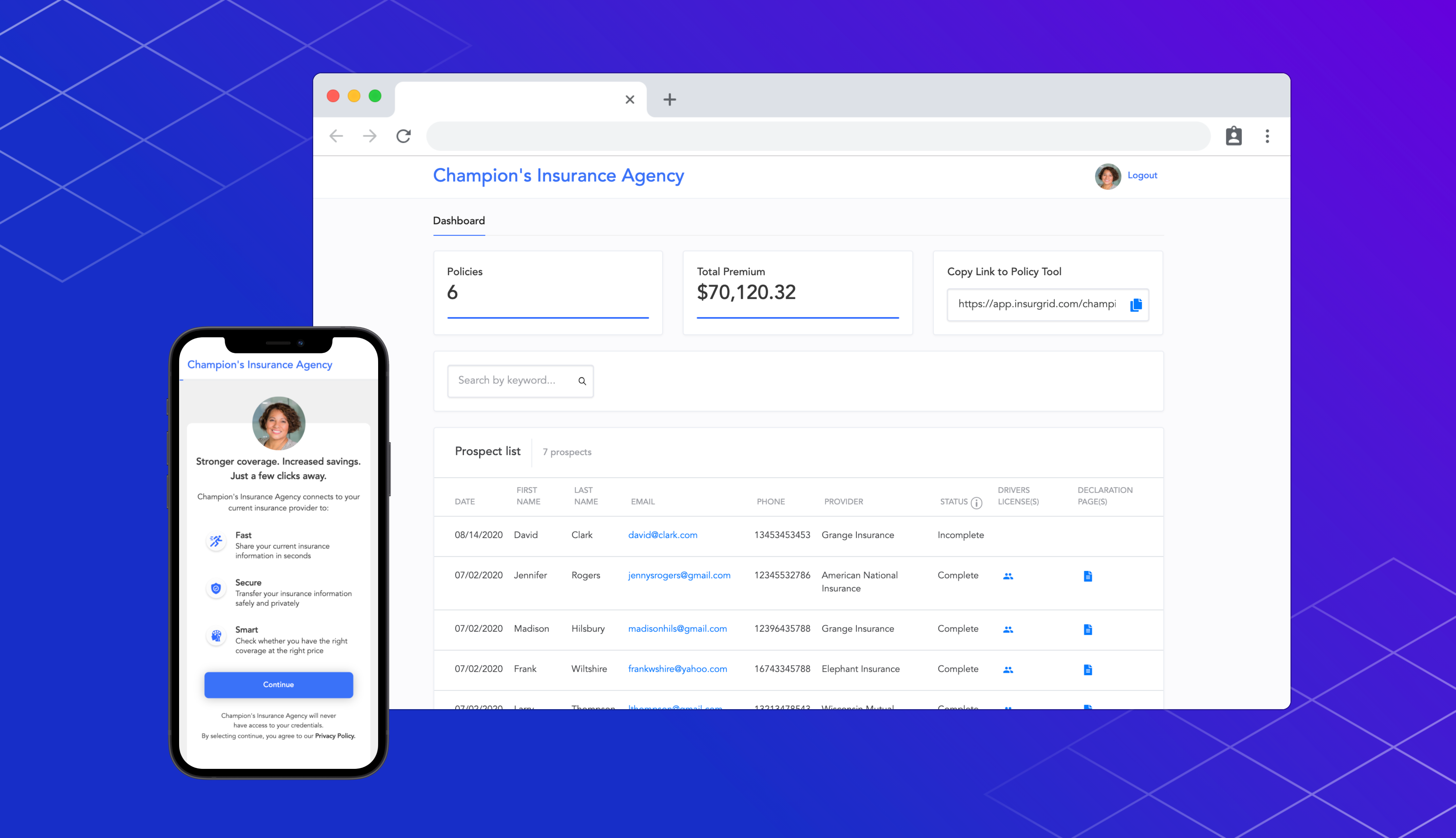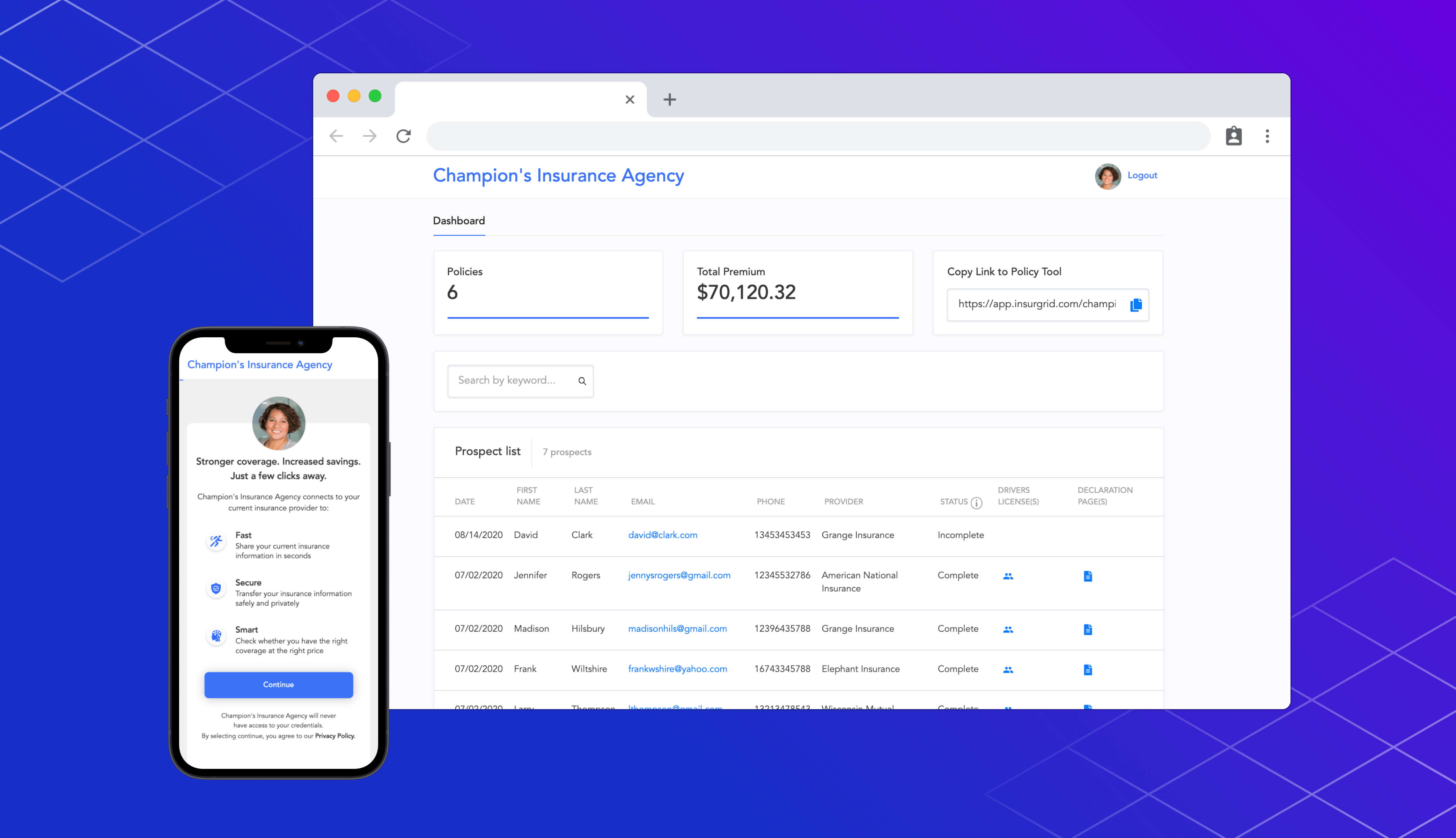Insurance agents spend hours handling paperwork and grabbing client information over the phone. A new seed-stage startup, InsurGrid, has developed a software solution to help ease the process, and make it easier for agents to serve existing clients — and secure new ones.
InsurGrid gives agents a personalized platform to collect information from clients, such as date of birth, driver’s license information and policy declaration. This platform helps agents avoid sitting on long calls or managing back-to-back emails, and instead gives them one spot to understand how all their different clients function. It is starting with property and casualty management.
The startup integrates with 85 insurance carriers, serving as the software layer instead of the provider. Using the InsurGrid platform, insurers can ask clients to upload information and within seconds be registered as a policyholder. This essentially turns into a living Rolodex that insurers can use to access information on the account, and offer quotes on a faster rate.

Image Credits: InsurGrid
There’s a monetary benefit in providing better service. Eden Insurance, a customer of InsurGrid, said that people who submit information through the platform converted at an 82% higher rate than those who don’t. Jeremy Eden, the agency owner of Eden Insurance, said they were able to show consumers that its plan was $300 cheaper than its existing rate.
At the heart of InsurGrid is a bet from the founding team that legacy insurance agents aren’t going anywhere. Co-founder/CEO Chase Beach pointed out that the majority of the $684 billion of annual property and casualty insurance premiums in the United States is distributed by approximately 800,000 agents working in 16,000 brokerages. So far, InsurGrid works with more than 150 of those agencies.
When asked if InsurGrid ever had plans to offer its own insurance, similar to insurtech giants Hippo, Lemonade and Root, Beach said that it is solely working on innovating around the sales process for now. He said that these big companies, which have either recently gone public or are planning to, still rely on agents to be successful.
“Instead of us replacing the insurance agent, what if we gave them that same level of technology of a Hippo or large carrier,” Beach said. “And provide them with the digital experiences so they can compete in 2021.”
As time goes on, he sees insurance agents taking the same role that financial advisors or real estate agents take: “very much involved in the process because they are that expert.”
Other startups that have popped up in this space include Gabi, Trellis and Canopy Connect. The differentiator, the team sees, is that Beach comes from a 144-year-old insurance legacy, giving him key insights on how to sell to agents in a successful and effective way. It is starting with sales, but expect InsurGrid to expand to other parts of the insurance process as well.
To help them compete with new and old startups, InsurGrid recently raised $1.3 million in pre-seed financing to help it fulfill its goal to be the “underdog for the underdogs,” Beach said. Investors include Engineering Capital, Hustle Fund, Vess Capital, Sahil Lavingia and Trevor Kienzle.













